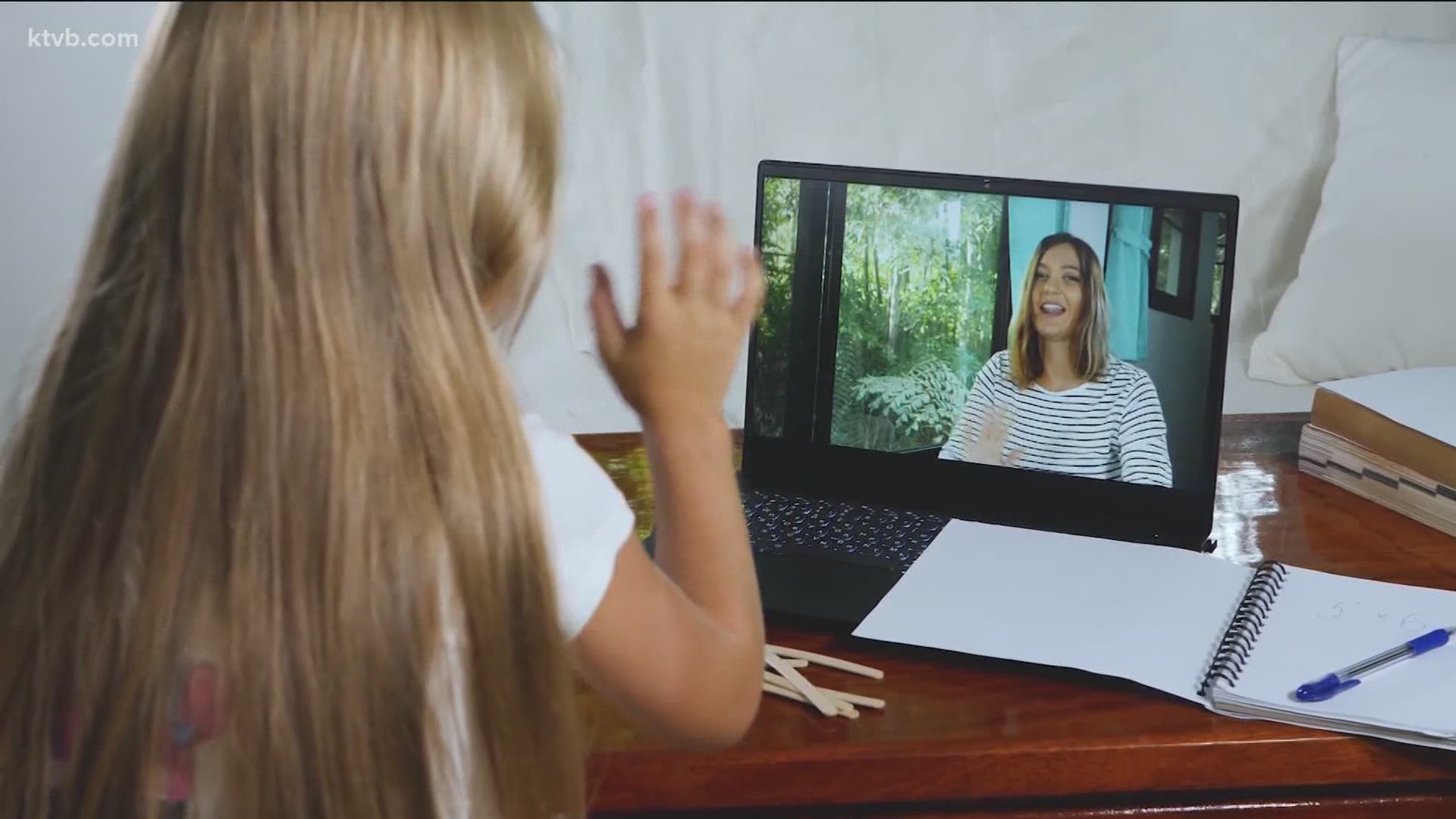BOISE, Idaho — Kids of all ages can experience nervousness and stress when returning to school even during a normal year, and this year is far from normal.
So how can parents help our kids break through those anxious feelings?
Dr. Dennis Woody with Optum Idaho says it is very normal for teens and younger children to feel some stress about the return to the classroom, even during a typical year.
“It certainly is, particularly as they waited through the summer to return to school and are wondering what that experience is going to be like. Depending on the age of the child, they can be thinking about different things. Some children are worried about if their friends are going to be in their classroom or if their teacher will like them," Woody said. "Older kids oftentimes are a bit concerned about this year’s grades and how that might impact them.”
RELATED: Hello Idaho: Boise woman finds support in online group after losing her husband to coronavirus
In small children, that anxiety might look like increased clinginess with a parent, or exhibit through "tantruming" or aggressive behaviors Younger students may not have the language skills to give voice to exactly what they are feeling.
Teenagers, on the other hand, are more likely to worry aloud and want to talk about what's on their mind, or isolate themselves from others.
Woody said it is important for parents to talk to their kids about stress, and try to show a good example of dealing with their own worries in a positive way.
"The more familiar a child or adolescent is with the parent’s modeling of how to resolve that sort of anxiousness, the better they are at being able to manage at their own scale," he said. “If a parent is so inclined, teaching the child to cope and to manage those stressful or anxiety-provoking experiences is really important – something as simple as teaching the child to take deep breaths, slow the breathing, sometimes counting backwards is very helpful.”
Having a place in the house where a child can go and feel safe, with a storybook or a stuffed animal, can also help reduce feelings of pressure.
This year, with so many school districts making changes, children could be frustrated from not being able to see their friends, especially if they are signed up for online schooling this year.
Woody says that parents can help lift some of that stress by helping them connect with friends by video chat or a simple phone call.
It’s also beneficial to provide dedicated downtime at home after an unfamiliar instructional day, he said.
“Some of the ideas around how do children learn to tolerate stress best is to expose them in low levels and enable them to recover and recuperate in the family around parents, perhaps at the dinner table. It’s those sorts of routines for children that really establish a dependable retreat to an environment where they can ask questions, where they feel safe, and they’ve got loved ones around them. That tends to be a remarkably robust way to prepare them for the next day.”
Watch more 'Hello Idaho':
Watch our latest conversations about mental health in our YouTube playlist:

